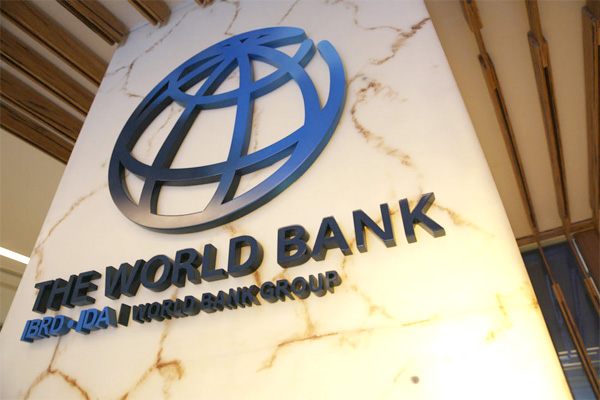
WB: The services sector is a key factor in structural transformation in Uzbekistan
WB: The services sector is a key factor in structural transformation in Uzbekistan
Tashkent, Uzbekistan (UzDaily.com) — Every day, countless trucks travel across American highways, but less known is the fact that companies in Uzbekistan play a key role in ensuring their movement. From a logistics center in Samarkand, located over 6,000 miles away, Uzbek workers monitor truck movements in the U.S. in real-time, helping drivers select the best routes and plan rest stops. This was reported by the World Bank.
The rise of digital technologies has made such service trade possible, something unimaginable just a few years ago. This example highlights how Uzbekistan’s services sector can contribute to the country’s economic growth and transformation, in a country with a population of over 37 million and an annual GDP growth rate of over 5 percent since 2017.
A new World Bank report titled "At Your Service?: The Growth Potential of Services in Uzbekistan" evaluates this potential.
The Services Sector: A Central Element of Uzbekistan’s Structural Transformation
The services sector, which now accounts for more than half of all jobs in Uzbekistan, has been a key factor in the country’s structural transformation since gaining independence in 1991. The share of those employed in services has grown from 37 percent to 50 percent between 1991 and 2022, effectively offsetting nearly all of the decline in the share of the agricultural workforce.
However, most of this growth is concentrated in low-skilled consumer services such as retail and hospitality, which tend to have low productivity. Social services such as healthcare and education have expanded mainly through increased government spending.
In Uzbekistan, global innovation-driven services requiring knowledge, such as information and communication technology (ICT), professional services (e.g., consulting, legal, architectural, and engineering services), and financial services, are twice as productive as manufacturing, but account for less than 5 percent of all jobs in the services sector. Moreover, the links between the services sector and the broader economy, especially with the manufacturing sector, remain weak.
The growth potential of the private-sector-driven services sector can be realized by strengthening the links between services and other sectors, increasing the share of global innovative services, and improving the productivity of low-skilled consumer services.
Policy Agenda: Connectivity, Competitiveness, and Opportunities (3C)
Uzbekistan can use the services sector to ensure additional growth and job creation by focusing on three key policy areas: connectivity, competitiveness, and opportunities (3C).
Compared to global standards, Uzbekistan lags below average in connectivity (according to the logistics efficiency index and the share of the population using the internet) and opportunities (based on the share of people with basic ICT skills and the enrollment rate in higher education). It ranks in the lower third for competitiveness (in terms of service trade restrictions).
As a landlocked country, Uzbekistan needs to improve both its physical and digital connectivity to enhance market access. In terms of physical connectivity, Uzbekistan ranks 88th out of 139 countries in the 2023 World Bank Logistics Performance Index. Regarding digital connectivity, access to high-speed mobile internet such as 4G/LTE is still limited, and only 40 percent of the population makes digital payments.
As for competitiveness, most services in Uzbekistan are heavily restricted, according to the World Bank and WTO’s International Trade in Services Restrictiveness Index. The country remains closed to cross-border delivery of many professional services.
Meanwhile, data localization laws significantly limit the cross-border delivery of ICT services. Additionally, state-owned enterprises, which dominate many service sectors such as telecommunications and transportation, pose further challenges to market competition.
Regarding opportunities, Uzbekistan’s focus on developing technical education and English language training helps build the necessary skill base, though these efforts could be expanded. Higher education enrollment remains low.
In 2022, the enrollment rate in higher education in Uzbekistan was 31.5 percent, less than half the average for Europe and Central Asia, which stands at 80 percent. Furthermore, the share of the population with basic ICT skills remains below 10 percent.
However, the recently established IT Park in Tashkent, offering world-class internet connectivity, duty-free access to imported ICT equipment and software, a digital IT university, and work visas for IT specialists and startup founders, demonstrates how policy actions can drive progress in connectivity, competitiveness, and opportunities.
Regulatory Reforms in the Services Sector Can Lead to Significant Economic Growth
The ambitious reform program launched by the government in 2017 accelerated Uzbekistan’s path toward becoming a higher-income market economy. However, more attention needs to be given to stimulating the services sector to sustain this transformation.
Regulatory reforms liberalizing the services sector could further accelerate economic growth. If restrictions on trade in services were reduced to a level that cut the gap between Uzbekistan and the best-performing countries by half, it is estimated that the country’s real GDP could grow by 9 percent, and real wages could increase by 8 percent on average. This would also significantly reduce poverty.
Uzbekistan’s ongoing efforts to join the World Trade Organization (WTO) open opportunities for liberalizing the services sector and creating new sources of growth. These reforms will improve competition in Uzbekistan’s services sector and address key issues related to physical and digital connectivity. Moreover, they will attract more foreign investments, technologies, and expertise, which are vital for the country’s transition to global innovative services.
Policies aimed at improving connectivity, competitiveness, and opportunities can help Uzbekistan use the services sector as a key driver of economic growth. This will play a critical role in achieving the goals of the country’s strategic development plan "Uzbekistan 2030."